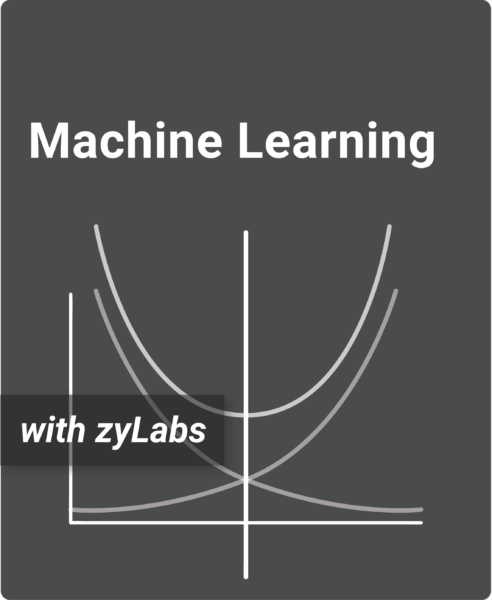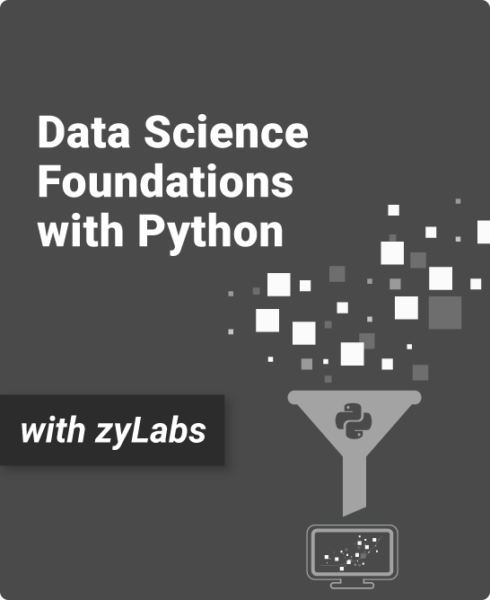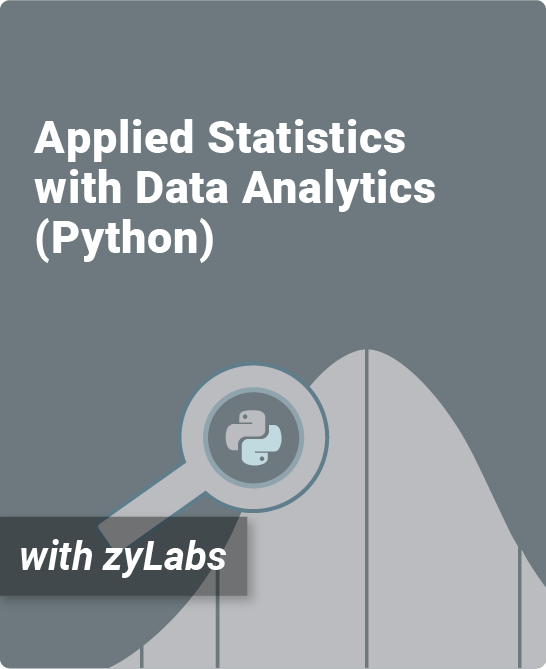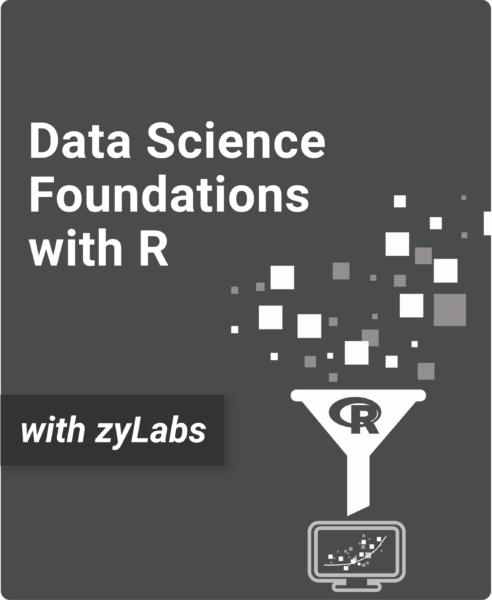Table of Contents
1. Introduction to Machine Learning
1.1 Introduction to machine learning
1.2 Feature and model types
1.3 Modeling workflow in scikit-learn
1.4 Bias-variance tradeoff
1.5 Machine learning ethics
1.6 Case study: Machine learning at Spotify
2. Classification Models
2.1 k-nearest neighbors
2.2 Logistic regression
2.3 Gaussian naive Bayes
2.4 Discriminant analysis
2.5 Case study: Logistic regression for passenger satisfaction
3. Regression Models
3.1 Linear regression
3.2 Elastic net regression
3.3 k-nearest neighbors for regression
3.4 Case study: Regression models for predicting well-being
4. Model Evaluation
4.1 Loss functions for classification
4.2 Classification metrics
4.3 Loss functions for regression
4.4 Regression metrics
4.5 Evaluating models with plots
4.6 Case study: Classifying credit card transactions
4.7 Case study: Predicting trip prices with regression
5. Model Validation
5.1 Cross-validation methods
5.2 Cross-validation for model selection
5.3 Cross-validation for model tuning
5.4 Case study: Using pipelines to classify emails
6. Model Improvement
6.1 Data pre-processing
6.2 Feature transformations
6.3 Imputation techniques
6.4 Case study: Encoding features in healthcare data
7. Support Vector Machines
7.1 Support vector classifiers
7.2 Nonlinear support vector machines
7.3 Support vector machines for regression
7.4 Case study: Support vector machines for predicting diabetes
8. Decision Trees
8.1 Decision trees for classification
8.2 Decision tree algorithms
8.3 Decision trees for regression
8.4 Case study: Decision trees for employee attrition
9. Ensemble Models
9.1 Bootstrapping
9.2 Bagging
9.3 Random forests
9.4 Boosting
9.5 Case study: Identifying heart attack risk factors with random forests
10. Deep Learning
10.1 Neural networks
10.2 Training neural networks
10.3 Gradient descent
10.4 Deep learning with Keras
10.5 Advanced neural networks
10.6 Case study: Classifying product reviews using RNNs
11. Clustering
11.1 k-means clustering
11.2 Hierarchical clustering
11.3 Other clustering algorithms
11.4 Case study: Clustering NBA players
12. Dimensionality Reduction
12.1 Feature selection
12.2 Feature extraction using linear techniques
12.3 Feature extraction using nonlinear techniques
12.4 Case study: Using PCA to transform nutrient intake
13. Appendix
13.1 Datasets
13.2 Symbols and notation
13.3 Vectors
13.4 Matrices
13.5 Derivatives
13.6 Probability
Teach Machine Learning using the only interactive solution with integrated Jupyter Notebooks
Machine Learning is the first complete, interactive introduction to the foundational algorithms and techniques for machine learning using Python.
- Balances computational skills with conceptual and practical machine learning applications
- Includes data preprocessing, supervised and unsupervised learning algorithms, decision trees, neural networks, ensemble methods, and model evaluation techniques
- Embedded Jupyter Notebooks give students real-world practice with real datasets
- Case studies apply machine learning methods to real data
- Continuously updated with the latest advances in machine learning
- Adopters have access to a test bank with over 300 questions
- zyLabs users can add their own Jupyter Notebooks via custom content
Data science is interactive; it requires coding and live investigations of data sets. To do all that within a digital zyBook is really powerful.”
– Co-author Dr. Aimee Schwab-McCoy
Dr. Schwab-McCoy explains the benefits of zyBooks for data science instructors and students:
What is a zyBook?
Machine Learning is a web-native, interactive zyBook that helps students visualize concepts to learn faster and more effectively than with a traditional textbook.
Since 2012, over 1,800 academic institutions have adopted web-native zyBooks to transform their STEM education.
zyBooks benefit students and instructors:
- Instructor benefits
- Customize your course by reorganizing existing content, or adding your own
- Continuous publication model updates your course with the latest content and technologies
- Gain insight into students’ progress, reading and participation with robust reporting
- Save time with auto-graded labs and challenge activities that seamlessly integrate with your LMS gradebook
- Build quizzes and exams with over 300 included test questions
- Student benefits
- Learning questions and other content serve as an interactive form of reading
- Instant feedback on labs and homework
- Concepts come to life through extensive animations embedded into the interactive content
- Save chapters as PDFs to reference the material at any time
- Gain real-life, professional experience working with industry standard Jupyter Notebooks
Embedded Jupyter Notebooks
The Machine Learning zyBook is fully integrated with the industry standard Jupyter Notebooks web-based computing platform. So students will gain real-life experience writing and editing live code, creating data visualizations, and experimenting by changing models to evaluate their performance with a professional application.
Jupyter Notebooks can also be downloaded for offline use.
In this video, Dr. Schwab-McCoy demonstrates the power of zyBooks’ embedded Jupyter Notebooks:
Author
Aimee Schwab-McCoy
Senior Manager, Content Development, Data Science, Mathematics and Statistics / PhD in Statistics, University of Nebraska–Lincoln
Key Contributors
Chris Chan
MA in Mathematics, San Francisco State University
Pamela Fellers
Content Developer, Statistics / PhD in Statistics, University of Nebraska–Lincoln




